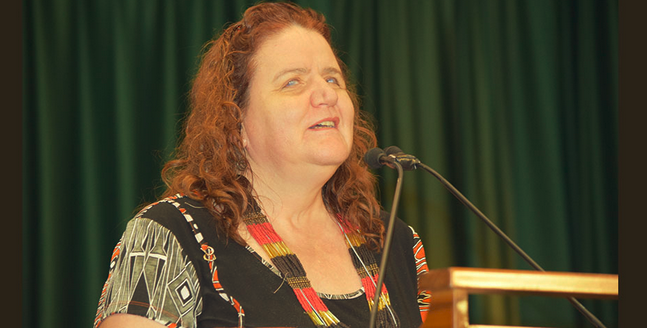|
Getting your Trinity Audio player ready…
|
Each year on January 4, the global blindness community comes together to celebrate Louis Braille, the inventor of the braille writing system, along with the system he invented, which would eventually go on to change the lives of blind people throughout the world.
This simple system of combining six raised dots into different patterns enables braille users to read not only books but music notation and mathematical formulas as well. Its flexibility has also allowed it to be adapted into many languages used around the world.
“I always look forward to beginning each year with a celebration of braille and all that it has contributed to the lives of blind people”, said Martine Abel-Williamson, President of the World Blind Union. “Not only is this an opportunity to celebrate, though, World Braille Day is also a day to take stock of what further actions need to be taken to improve access to braille”, added Abel-Williamson.
The UN Convention on the Rights of Persons with Disabilities (CRPD) is the key guiding document for the global disability movement. The CRPD outlines obligations for those countries who have ratified the Convention, including obligations regarding access to braille. Article 21 of the CRPD requires member states to ensure that information intended for the general public is in accessible formats such as braille, and article 24 requires that in the education system, students who are blind receive their education in the modes that are most appropriate to their needs, such as braille from educators who are fluent in braille.
“Despite obligations arising from international and national law, we know many blind people lack access to braille itself, to appropriate training in braille, and to technologies that facilitate the use of braille”, said Marc Workman, WBU CEO. “We take this opportunity on January 4 to call on governments around the world to commit to improving access to braille for their blind citizens both within the education system and beyond”, added Workman.
“One concrete step countries can take to improve access to braille is to ratify and fully implement the Marrakesh Treaty. Among other things, this Treaty facilitates the cross-border sharing of braille materials, which means blind people in countries with limited access to braille can gain the ability to read braille materials produced in countries with larger braille libraries”, said Kim Charlson, newly appointed chair of the WBU World Braille Council and Executive Director of the Braille & Talking Book Library at the world-renowned Perkins School for the Blind. “Although many countries have ratified the Marrakesh Treaty, fully legal and technical implementation has not occurred in far too many countries throughout the world, leaving the tremendous promise of this Treaty largely unfulfilled.”
While World Braille Day will always be a day for celebration n, it must also remain a call to action until blind people across the world have full access to this life-changing tool. This January 4, we ask you to join us in both celebrating brailles and calling on governments to ensure access to braille is a priority around the world.
